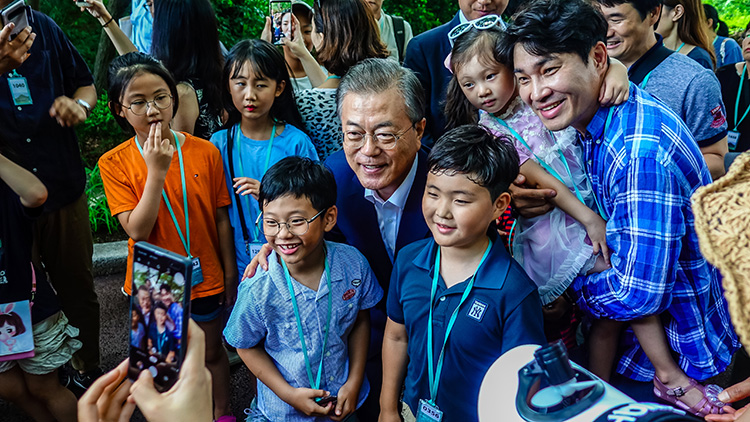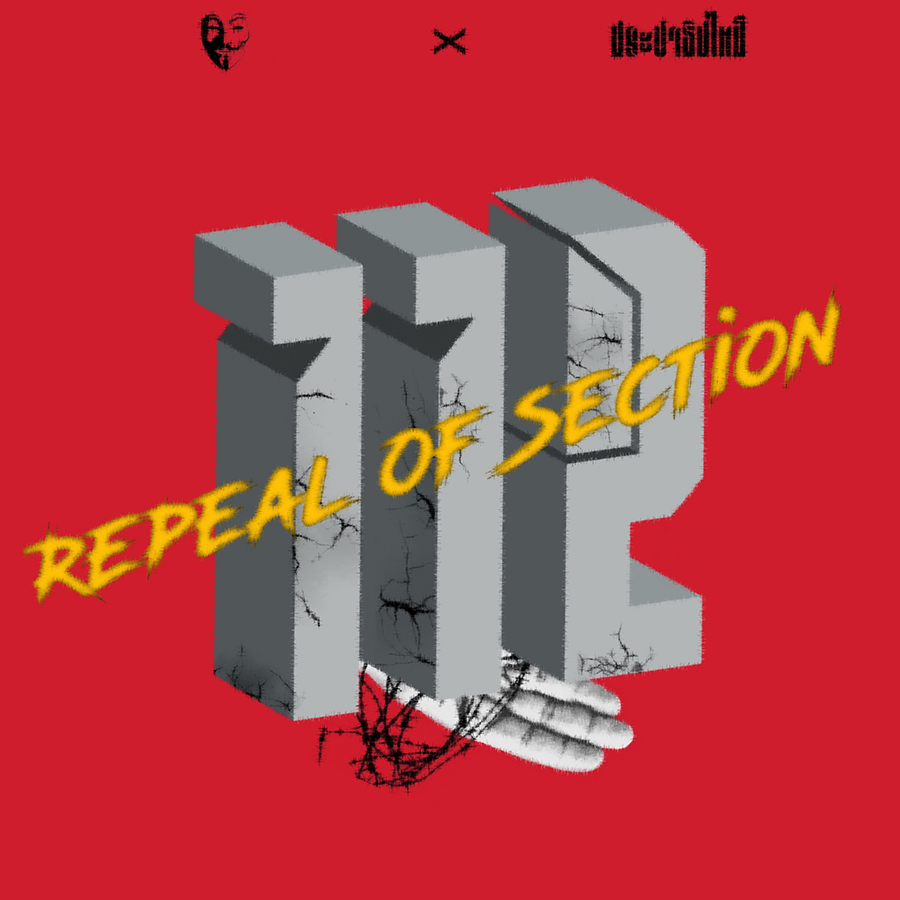
People’s Party (Prachachon): Lese-Majeste Reform—Bold Leap or Risky Gamble?
The recent dissolution of the Move Forward Party (MFP) and its evolution into the People’s Party (Prachachon) highlights a crucial juncture in Thai politics.
Prem Singh Gill – August 12, 2024
The recent dissolution of the Move Forward Party (MFP) and its evolution into the People’s Party (Prachachon) highlights a crucial juncture in Thai politics. At the heart of this transformation is the party's bold commitment to reforming Thailand's Lèse-majesté law (Criminal Code 112), which criminalises criticism of the monarchy. As the People’s Party (Prachachon) prepares for the 2027 elections, the central question arises: Is their unwavering push for reform a courageous step toward democratic progress, or a perilous gamble that could invite severe repercussions and jeopardise their political future?
The Lèse-majesté law, one of the strictest of its kind globally, has long been a cornerstone of Thailand’s political and legal framework. It criminalises any form of criticism against the monarchy, carrying severe penalties that can extend up to 15 years in prison for each offence. This law, designed to protect the revered institution of the monarchy, has often been wielded as a tool to silence dissent and suppress political opposition. The dissolution of MFP, which was precipitated by a court ruling over its calls for reforming this very law, underscores the high stakes involved in challenging entrenched power structures in Thailand.
The Double-Edged Sword of Lèse-majesté Reform
The People’s Party's (Prachachon) approach to this issue is both bold and fraught with risk. By continuing the campaign to amend Criminal Code 112, the party positions itself as a champion of democratic values and freedom of speech, striving to dismantle a repressive tool used against political opponents. This commitment resonates deeply with a segment of the Thai population, particularly younger, urban voters who have become increasingly disillusioned with the status quo. The MFP's previous successes in securing a substantial number of seats in the last election reflect the significant support for reform among this demographic.
Yet, their campaign is a high-stakes gamble. The constitutional court’s dissolution of MFP and the ban on its executives underscore the dangers of challenging the Lèse-majesté law. The court's ruling, accusing the party of undermining the monarchy, illustrates the conservative establishment's pattern of using legal manoeuvres to stifle progress. Continued focus on this reform could provoke further legal action, risking the party’s dissolution and disenfranchising their supporters.

From Dissolution to Power: Can Prachachon Transform Thai Politics?
Thailand’s political history is replete with examples of parties and movements suffering severe consequences for challenging the monarchy or established power structures. The Future Forward Party, the MFP's predecessor, was disbanded in 2020 under allegations related to campaign financing. Similarly, other progressive movements have faced dissolution, legal battles, and political persecution. These precedents underscore the high stakes involved in challenging the Lèse-majesté law, illustrating the potential for backlash against the People’s Party (Prachachon) as it continues its reform campaign.
Despite these risks, the People’s Party’s (Prachachon) position can be seen as a necessary counterbalance to a political system that has long suppressed dissent and curtailed democratic freedoms. By continuing to push for Lèse-majesté reform, the party aims to address a significant issue that affects not only political discourse but also broader human rights concerns in Thailand. The law’s stringent penalties and the way it has been used to suppress political opposition and criticism underscore the need for reform.
Yet, the party must navigate a complex and often hostile political landscape to achieve its goals. The conservative establishment, including influential royalists and military factions, has shown a willingness to use legal and political means to maintain the status quo. The People’s Party (Prachachon) must consider whether their focus on Lèse-majesté reform is the most effective way to achieve their broader democratic goals or whether it risks provoking a backlash that could undermine their ability to govern and represent their supporters.
To mitigate the risks of a direct confrontation with the Lèse-majesté law, the People’s Party (Prachachon) might consider adopting a more incremental and multi-faceted approach to their reform agenda. Instead of making Lèse-majesté reform the centrepiece of their campaign, the party could prioritise a broader range of issues, such as economic reform, anti-corruption measures, and improvements in governance. By demonstrating a comprehensive commitment to addressing a variety of societal concerns, the party could build a wider base of support and reduce the likelihood of provoking a strong legal or political backlash. This strategic shift could enable the party to advance their democratic goals while maintaining a more secure position in the political landscape.
Building a coalition of support both domestically and internationally could also be a crucial part of the People’s Party’s (Prachachon) strategy. Engaging with other progressive parties, civil society organisations, and international human rights and democratic institutions could help bolster their position and provide a buffer against potential legal and political challenges. By framing their reform efforts as part of a larger, globally-supported movement for democratic change, the People’s Party (Prachachon) might be able to garner additional support and reduce the risk of being isolated and targeted by conservative forces.

What Can Prachachon Learn from South Korea and Taiwan's Reforms?
Insights from South Korea and Taiwan can guide the People’s Party (Prachachon) in advancing their reform agenda. In South Korea, President Moon Jae-in’s administration showed that focusing on gradual reforms and creating cross-party alliances can lead to significant policy changes while minimising intense backlash. Moon’s approach involved prioritising incremental reforms in areas like corruption and economic inequality, which helped his administration gain wider support and reduce resistance from established interests. For the People’s Party (Prachachon), a similar strategy might involve breaking their reform agenda into smaller, more manageable parts, which would help build consensus and show progress over time without provoking strong opposition.
Similarly, Taiwan’s pro-democracy movements achieved notable success by balancing bold initiatives with pragmatic negotiations and coalition-building. Taiwan’s approach to reforms such as same-sex marriage involved careful negotiation with various stakeholders, including political parties, civil society groups, and the public. This strategic pragmatism enabled Taiwan to push forward significant changes while maintaining stability and avoiding severe backlash. The People’s Party (Prachachon) could draw from this experience by engaging with diverse stakeholders, building alliances, and seeking compromises to strengthen their position and reduce the risks associated with challenging the Lèse-majesté law directly.

The key lesson from both South Korea and Taiwan is the importance of balancing ambitious reform goals with strategic coalition-building and incremental progress. For the People’s Party (Prachachon), this means integrating Lèse-majesté reform within a broader, multifaceted reform agenda. By demonstrating progress on a range of issues—such as economic development, anti-corruption measures, and improved governance—the party can build a broader base of support and mitigate risks associated with a singular focus on Lèse-majesté reform. Strategic recommendations include adopting incremental reforms, engaging with a broad coalition of supporters, increasing public awareness, and preparing for potential challenges to navigate Thailand’s complex political landscape effectively.
New Era or Backlash with Lèse-majesté Reform?
The People’s Party (Prachachon) could draw valuable lessons from these examples. By pursuing a balanced approach that combines ambitious reform goals with strategic coalition-building and incremental changes, the party could work towards achieving their objectives while safeguarding their ability to effectively govern and represent their supporters. This approach would involve a careful assessment of the political landscape, a focus on building broad-based support, and a willingness to adapt their strategies in response to evolving challenges.

Prachachon stands at a pivotal moment as it seeks to reform Thailand’s Lèse-majesté law, embodying a bold commitment to democratic values amidst a challenging political landscape. Their stance on Lèse-majesté reform reflects a significant push against a law historically used to suppress dissent and consolidate power. However, this ambitious agenda comes with considerable risks, potentially jeopardising the party’s future and the broader representation of its supporters. To navigate these risks effectively, a more nuanced strategy that integrates ambitious reform goals with strategic coalition-building and incremental changes may offer a more viable path forward. By drawing lessons from South Korea’s incremental reform approach and Taiwan’s pragmatic coalition-building, the People’s Party (Prachachon) can work towards meaningful reform while maintaining political stability and broader support. Balancing immediate reform goals with a strategic, multifaceted agenda could help the party achieve its objectives while safeguarding its capacity to govern and represent its constituents effectively.
Prem Singh Gill
Prem Singh Gill is a Visiting Scholar at the Universitas of Muhammadiyah Yogyakarta, Indonesia and a Visiting Scholar at Thammasat University





